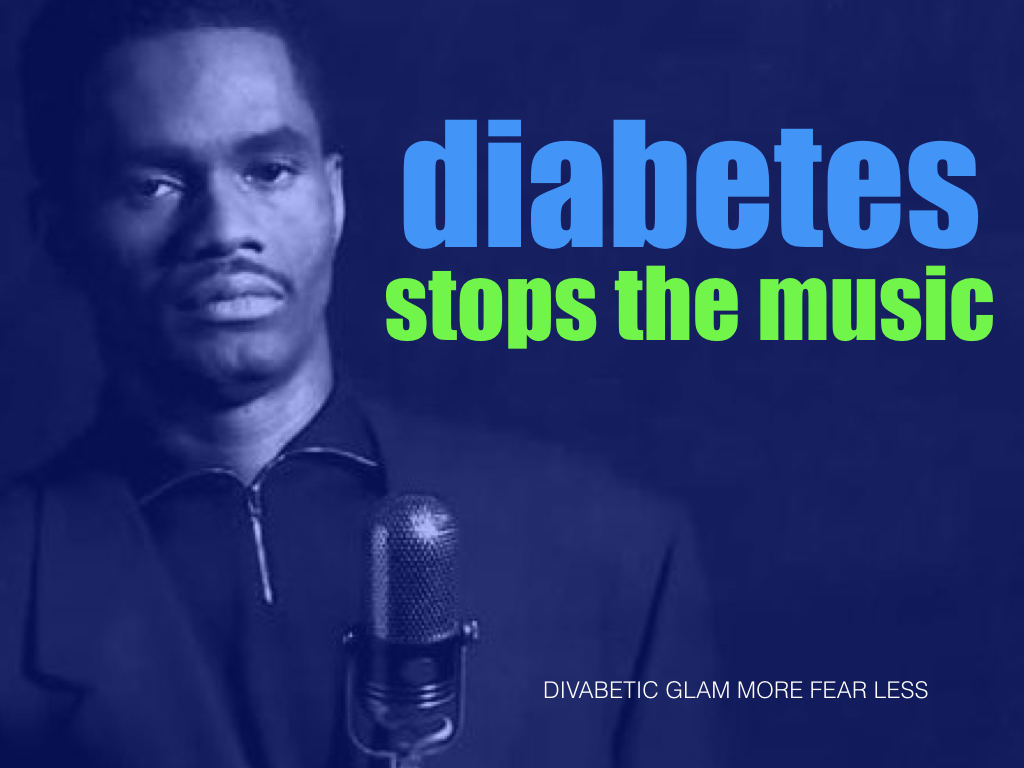
Colonel Abrams joins a long list of men from the R & B and Hip Hop music communities who died of diabetes health-related complications this year. The list includes Phife Dawg (‘A Tribe Called Quest’), Prince Be (‘P.M. Dawn’), and radio personalities Doug Banks and Vaughn Harper.
Diabetes is 60% more common in black Americans than in white Americans. Blacks are up to 2.5 times more likely to suffer a limb amputation and up to 5.6 times more likely to suffer kidney disease than other people with diabetes. Diabetes is also a significant contributor to erectile dysfunction. Because men are less likely to engage in the health care system, primary and secondary prevention efforts need to be implemented in culturally appropriate, male-oriented venues.
Last year, Colonel Abrams was reportedly homeless and suffering from diabetes, and a crowd-funding effort by fans and friends was launched to get him back on his feet.
Colonel Abrams stated in a video: “As most of you may or may not know, a lot of recording artist don’t have medical coverage or benefits.” He went on to say… “The Colonel is very ill with no permanent place of his own to live at this time and limited financial resources.”
The Detroit-born, Manhattan raised singer began playing both piano and guitar while still quite young. By the mid 1970s he became part of the band Heavy Impact. But it was nearly a decade later that Abrams really made a name for himself with the big 1985 hit “Trapped”. Colonel Abrams also sang on several tracks that are considered to have laid the groundwork for what is now considered global dance music including the songs, “How Soon We Forget” and “Not Gonna Let.”
According to Soul Tracks: “By the mid 1970s he became part of the band Heavy Impact. But it was nearly a decade later that Colonel Abrams really made a name for himself with the big hit ‘Music Is the Answer.’ It began a string of dance hits that capitalized on the electronic sounds that were popular in the mid ’80s … Abrams continued to chart on the Dance and R&B charts into the mid-’90s, and performed around the world into the new century. He also formed his own Colonel Records and released music sporadically through the early part of this decade.”
<iframe width=”560″ height=”315″ src=”https://www.youtube.com/embed/EhEyBuXHfFo” frameborder=”0″ allowfullscreen></iframe>
The rate of diabetes among people who are homeless is on the rise along with diabetes health-related deaths. People who are homeless don’t have the finances to afford to monitor their blood sugar levels on a regular basis and healthy food choices.
Jan Boyd, a registered nurse who works with Withers on Operation Safety Net said, “People on the street don’t usually seek medical care unless the symptoms are making them uncomfortable. With diabetes, discomfort comes too late.”
And life expectancy for a person without a home is just 45-49 years, according to a study done by the National Health Care for the Homeless Council. The NHCHC also reports that the number one cause of death among the homeless population is complications related to chronic conditions like diabetes!
Dr. Jim Withers co-founded Operation Safety Net, which is part of the Pittsburgh Mercy Health System in Pittsburg, PA. Operation Safety Net provides healthcare to people living on the street, but Withers describes it differently: “The program is providing people with hope,” he says.
“Our philosophy is to treat people where they are,” said Withers, who has been treating homeless people since 1992. Operation Safety Net has helped transition more than 850 chronically ill homeless people into permanent housing since it started, and many of those people have been living with diabetes.
We have experienced so many diabetes health-related deaths in the urban radio and music industry. It is my goal to find a way to share these stories as a way to teach today’s music fans about diabetes on our free monthly podcasts. If you have any suggestions let me know.

LISTEN: Diabetes Late Nite inspired by A Tribe Called Quest. Phife Dawg, born Malik Taylor, was diagnosed with type 1 diabetes in May of 1990. Experiencing constant thirst and bathroom visits, his grandmother, a nurse, tested him for diabetes after a performance in Connecticut. Initially, Phife admitted he did not take his diagnosis seriously, and maintained his same lifestyle.
“It’s really a sickness,” Taylor said in Beats, Rhymes & Life, Michael Rapaport’s candid 2011 documentary on the group. “Like straight-up drugs. I’m just addicted to sugar.”
Phife’s initial resistance to treatment made it necessary for him to go on dialysis followed by a kidney transplant in 2008. This past March he died at age 45.


